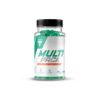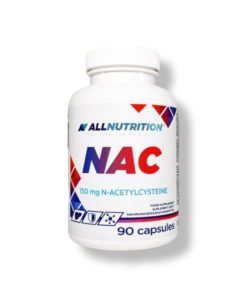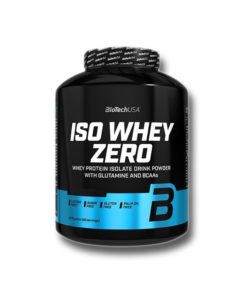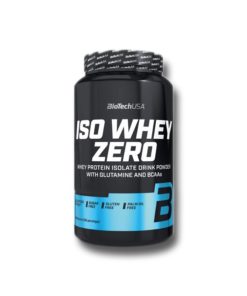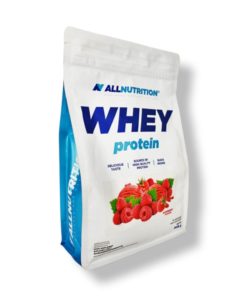OLIMP Vitamin Multiple Sport 60caps
13,50 €
OLIMP Vitamin Multiple Sport 60caps – A comprehensive set of vitamins and minerals for the vitality of the body!
- OLIMP Vita-Min Multiple Sport® Mega Caps® / Mega Capsules® is a comprehensive composition of Vita-Plex Sport® vitamins and Chela-min Sport® minerals, along with a complex of special extracts (HEPA-PROST DETOX) that affect the proper functioning of the liver and prostate. OLIMP Vita-Min Multiple Sport® Mega Caps® / Mega Capsules® helps to meet the basic needs for the necessary micronutrients of the body, burdened with heavy physical effort.
- OLIMP Vita-Min Multiple Sport® Mega Caps® / Mega Capsules® contains a complex of minerals, including minerals in the form of Albion® amino acid chelates – highly absorbable forms of minerals that do not irritate the stomach and do not inhibit the absorption of other minerals.
Out of stock
Vitamins and minerals found in OLIMP Vita-Min Multiple Sport
- Vitamin A plays an important role in the process of cell specialization; contributes to the creation of new photoreceptors responsible for maintaining proper eyesight
- Vitamin C and minerals have a positive effect on the pace of post-training regeneration and reduce inflammation in the body.
- Vitamin E prevents the destruction of the muscle cell membrane during intense physical work, and can also prevent the reduction of physical efficiency during training at high altitudes above sea level. Vitamin E prevents the breakdown of red blood cells and blood condensation, thus maintaining their proper functions related to oxygen transport. Vitamin E deficiency results in reduced exercise capacity and greater compliance of the cell membrane as a result of the degenerative action of oxygen free radicals. Vitamin E allows for faster regeneration of the body, which is manifested in a higher testosterone / cortisol ratio 24 hours after training.
- The vitamin B complex is responsible for the regulation of the nervous and immune systems and for the proper energy metabolism of the muscle cell.
- Vitamin B1 supports metabolic processes and brain functions, maintains the health of the nervous system, helps in skin diseases and the treatment of tissues after surgery.
- Vitamin B2 – helps in the absorption of iron, the production of hemoglobin, protein synthesis and the transformation of fats and carbohydrates.
- Vitamin B3 (niacin) – takes part in the formation of nicinamide adenine dinucleotide (NADH / NAD +), responsible for the proper course of glycolysis and the Krebs cycle.
- Vitamin B6 – takes a direct part in the proper formation of red blood cells (erythrocytes) and regulates the water and electrolyte balance. The deficiency of this vitamin reduces the level of physical performance.
- Folic acid – essential for DNA synthesis, regulates the growth and functioning of all cells. Folic acid with vitamin B12 also participates in the formation and maturation of red blood cells.
- Vitamin B12 is involved in the breakdown of homocysteine, which protects the walls of blood vessels. It regulates the work of the nervous system, protein synthesis and the formation of new erythrocytes.
- Vitamin D is essential for the proper reconstruction of our bone tissue, it accelerates myofascial regeneration during the treatment of injuries. Vitamin D is converted int
- calcitriol, which in turn modulates the activity of over 2,000 genes responsible for cell maturation, protein synthesis and the body’s immunity.
- Pantothenic acid – is part of coenzyme A, which is necessary for the proper transport of energy compounds from fats, carbohydrates and proteins and for including them in the Krebs cycle.
- Biotin – takes part in DNA synthesis in the process of new cell formation, supports the process of gluconeogenesis.
Microelements:
- Manganese and zinc are essential in the process of removing oxygen free radicals resulting from oxidative phosphorylation (mitochondrial respiratory chain) and are part of one of the most important antioxidant enzymes: manganese superoxide dismutase (MnSOD) [1,3]
- Magnesium – magnesium deficiency affects the development of osteoporosis, lipid and neuromuscular disorders. The magnesium ion is involved in the production and transmission of energy, and its proper concentration results in better tolerance of physical effort [5]
- Calcium – is involved in blood clotting, in the contraction of skeletal and smooth muscles, in active transport through membranes and in the regulation of the work of many enzymes.
- Potassium – is the main intracellular mineral. Takes part in maintaining acid-base and water-electrolyte balance.
- Iodine – indispensable in the production of thyroid hormones (T3, T4) responsible for the energy metabolism of the whole body, thermoregulation and weight control.
- Chromium – by supporting the action of insulin, it effectively affects the metabolism of carbohydrates. The combination of chromium with insulin stimulates protein synthesis by improving the penetration of amino acids into the cells.
- Selenium – is essential in the formation of glutathione peroxidase, an enzyme that is part of the antioxidant defense
RECOMMENDED USE
Recommended daily dose: 1 VITA – PLEX Sport® capsule and 1 CHELA-MIN Sport® capsule once a day after the main meal, drinking plenty of water. Do not take together with other vitamin preparations.
NUTRITIONAL INFORMATION
Ingredients of VITA-PLEX SPORT® multi-vitamin complex
vitamins (microencapsulated L-ascorbic acid (PureWay-C®) – vitamin C, DL-α-tocopheryl acetate – vitamin E, nicotinamide – niacin, D-biotin, retinyl acetate – vitamin A, calcium D-pantothenate – acid pantothenic, pyridoxine hydrochloride – vitamin B6, cholecalciferol – vitamin D, pteroylmonoglutamic acid – folate, thiamine mononitrate – vitamin B1, riboflavin – vitamin B2, cyanocobalamin – vitamin B12), citrus biofonoids, artichoke extract (Cynara scolymus) ), pumpkin seed extract (Cucurbita pepo L.), nettle leaf extract (Urtica dioica L.), green tea extract (Camellia sinensis L.), alpha lipoic acid, black pepper extract (Piper nigrum L.), cellulose microcrystalline – filler, magnesium stearate – anti-caking agent, capsule (gelatin – shell component, dyes: E 171).
CHela-Min® chelated minerals complex
magnesium bisglycinate ** (magnesium amino acid chelate), magnesium oxide, calcium bisglycinate ** (calcium amino acid chelate), potassium chloride, calcium carbonate, zinc bisglycinate ** (zinc amino acid chelate), microcrystalline cellulose – filler, magnesium stearate – anti-caking agent , manganese bisglycinate ** (managane amino acid chelate), sodium selenate (IV), iron bisglycinate ** (iron amino acid chelate), copper bisglycinate ** (copper amino acid chelate), chromium (III) chloride, potassium iodide, capsule (gelatin – shell component, dyes: E 132, E 171).
| Olimp Vita-Min Multiple Sport – 60 kaps. | |||||
| Serving | 1 caps. | ||||
| Portions in the package: | 30 (1 kaps. VITA-PLEX + 1 kaps. CHELA-MIN) | ||||
| Packaging: | 60 kaps. (30 kaps. VITA-PLEX + 30 kaps. CHELA-MIN) | ||||
| Nutritional Value / Nutritional Information | Na 1 kaps. | % RWS* | |||
| VITA-PLEX (multi-vitamin complex): | – | – | |||
| Vitamin A | 1000 µg | 125% | |||
| Vitamin D | 10 µg | 200% | |||
| Vitamin E | 24 mg | 200% | |||
| Vitamin C (PureWay-C®) | 290 mg | 363% | |||
| Thiamin | 19.4 mg | 1764% | |||
| Riboflavin | 19.6 mg | 1400% | |||
| Niacin | 31 mg | 194% | |||
| Vitamin B6 | 18.8 mg | 1343% | |||
| Folic acid | 400 µg | 200% | |||
| Vitamin B12 | 23 µg | 920% | |||
| Biotin | 100 µg | 200% | |||
| Pantothenic acid | 12 mg | 200% | |||
| Citrus bioflavonoids | 100 mg | – | |||
| Artichoke extract | 80 mg | – | |||
| Pumpkin seed extract | 60 mg | – | |||
| Nettle extract | 60 mg | – | |||
| Green tea extract | 60 mg | – | |||
| ALA (alpha-lipoic acid) | 10 mg | – | |||
| Black pepper extract | 1 mg | – | |||
| CHELA-MIN (chelated minerals complex): | – | – | |||
| Magnesium | 190 mg | 51% | |||
| Calcium | 100 mg | 12,5% | |||
| Potassium | 75 mg | 3,75% | |||
| Zinc | 15 mg | 150% | |||
| Iron | 3 mg | 21% | |||
| Manganese | 3 mg | 150% | |||
| Copper | 0.5 mg | 50% | |||
| Iodine | 150 µg | 100% | |||
| Chromium | 150 µg | 375% | |||
| Selenium | 75 µg | 136% | |||
WARNING
Contraindications:
- Do not exceed recommended servings for consumption during the day.
- The product must not be used by people who are allergic to any of its ingredients.
- It is not recommended for pregnant women, breastfeeding mothers, children and people under 18 years of age.
Storage:
- Keep out of the reach of small children.
- Store in a dry and dark place at room temperature tightly closed packages.
- Protect against direct sunlight.
- Do not exceed the recommended daily dose.
- Best before end: date and batch number are on the side / bottom of the package.
Remember!
Keep in mind that too much of anything can be harmful. This applies to every product, so you must remember to be reasonable and follow the manufacturer’s or dietitian’s recommendations!
** – Reference intake value for an average adult (8400 kJ / 2000 kcal)
Dietary supplements cannot be used as a substitute for a varied diet. Remember that only a healthy lifestyle and a balanced diet ensure the proper functioning of the body and maintain good condition. **
* The nutritional values in the table may slightly differ depending on the batch.
* Ingredients, grammage and nutritional values may slightly differ depending on the flavor variant of the product.




